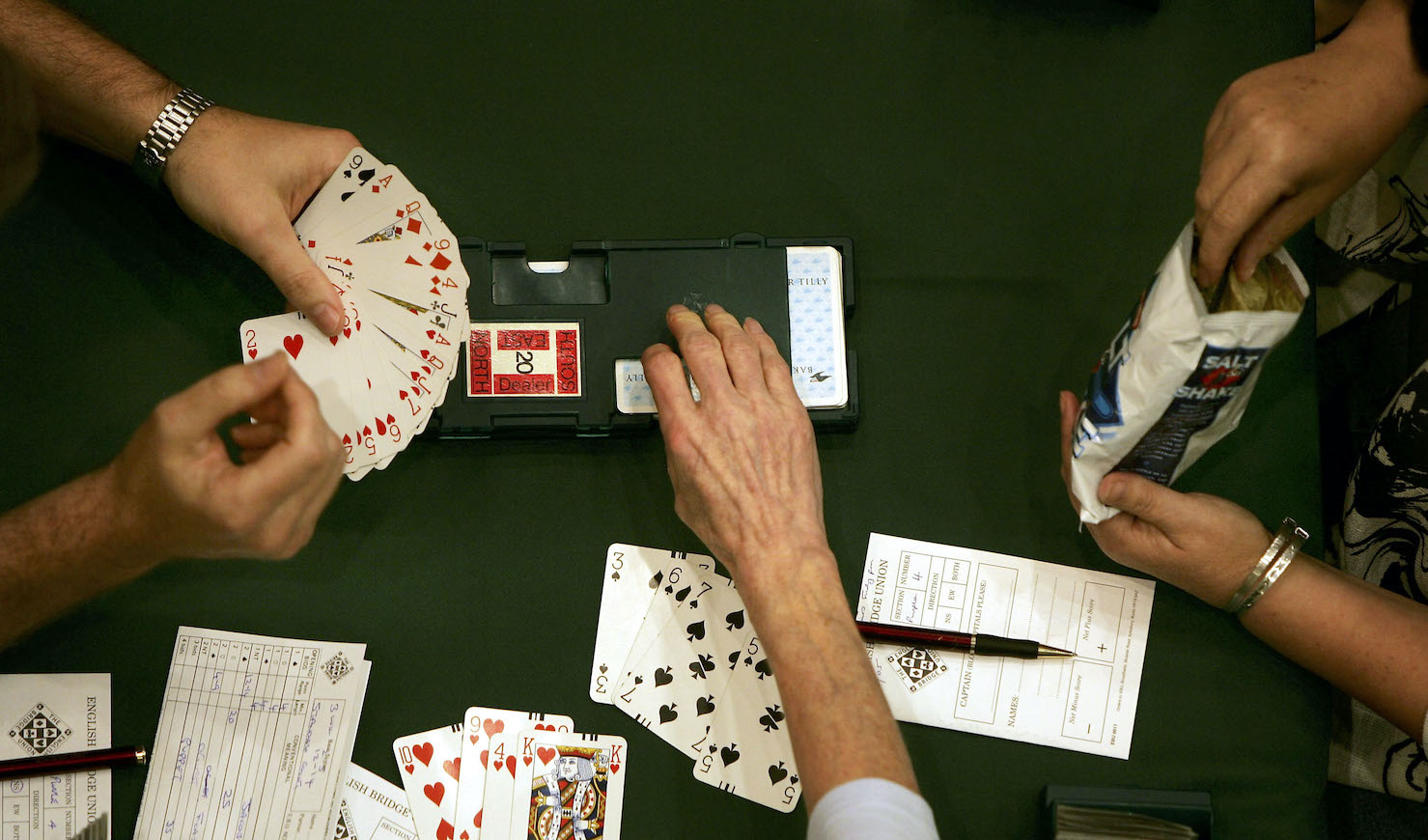The European Bridge League is currently hosting online qualifiers ahead of this November's European Champions Cup and next spring's World Bridge Team Championships. The stakes are high and the continent's best are assembled, yet the event has been engulfed in controversy, as most teams at the tournament are boycotting the Italian team because one of their players, Fulvio Fantoni, is a notorious bridge cheater.
The scandal was first reported on by the Telegraph, who led off the article with a paragraph about how people tend to assume all Italian sportspeople are cheaters. Scotland were the first team to boycott their game against Italy, and several other nations followed their lead. "It’s outrageous," one player told the Telegraph. "There is widespread belief among members of the bridge-playing community that he should not have been eligible to play."
Fantoni and his partner Claudio Nunes, then the top-two players in the world, were briefly banned from playing together for life after they were caught cheating at the 2014 European Bridge Championship. Bridge is a cooperative card game where two partners sitting across the table try to take a specified number of tricks, while the other two players attempt to stop them. The crux of the game is that neither partner knows what cards their teammate is holding, which necessitates coordination and trust. It follows then that the simplest way to cheat would be to circumvent the honor system and tip one's teammate off about the contents of your hand, which is what Fantoni and Nunes did.
Their system was pretty simple: When one of them played a card vertically during the opening lead phase of play, it signaled the presence of a "high honor" card (an ace, king, or queen) in the lead suit, while a horizontal play meant that the player held no such card. Dutch player and physicist Maaijke Mevius first noticed the suspicious card orientations at the 2015 Italian Championships when the pair pulled off an apparently spectacular play that involved Fantoni making a seemingly illogical move that turned out to be perfect. All Fantoni could say in his defense was that he experienced "un momento di obnubilamento," or a temporary blackout that caused him to play the mysteriously beneficial card.
Mevius analyzed that game and several others that took place at the 2014 Euros, and sent her findings on to authorities. One such bridge expert, American Kit Woolsey, published the first investigation into Fantoni and Nunes's cheating system in September 2015, analyzing 85 hands and finding that they could correctly predict 82 of them following the vertical or horizontal tip-off.
By early 2016, bridge's various governing bodies began to issue harsh sanctions to Fantoni and Nunes. Within three months, the Italian Bridge Federation banned the pair for three years, the European Bridge League banned them individually for five years and banned them from playing as a pair for life, and the American Contract Bridge League stripped them of all records and kicked them out of the league. The IBF and EBL later dropped their ban on appeal, though the pair said they didn't intend to play together ever again.
Italian team captain Alberto Forcucci decried the boycott this week, and claimed that Fantoni was only added to the team after the original sixth player had to bow out due to a work commitment. "All players should condemn the boycott, which is beneath the international Bridge community and bridge professionals who refuse to compete with a team of amateurs," he said. If EBL officials side with those boycotting the Italians, the Italian team could wind up earning zero points and quickly tumble out of the tournament. However, officials could also rule that a boycott means a forfeit, so Italy could wind up advancing through the tournament without playing. "There is no precedent for this and no written regulation to deal with teams refusing to play each other," an EBL official told the Telegraph. "So we will have to wait to see what happens. It is very problematic."
H/t to James Gleick






